The Apple Watch SE and Samsung Galaxy Watch 3 offer some of the best that smartwatches can provide right now, albeit from very different perspectives. The Apple Watch SE utilizes a more rectangular, but still curved shape, while the Samsung Galaxy Watch 3 goes for a more traditional circular design.
And, of course, there's the not-so-small matter of the Apple Watch SE being designed for use with an iPhone and the Samsung Galaxy Watch 3 pairing up better with an Android device. The latter will still work with an iPhone though, you just lose some functionality.
Both support standard training features for active users, with fitness tracking being extensive on both devices, along with GPS tracking and heart rate monitoring. In the case of the Samsung Galaxy Watch 3, you even get things like an ECG and blood oxygen monitoring. So they have a lot of similarities and just as many differences.
With both devices available for about the same price, which one is the best to go for, and does it matter what phone you want to pair it with? Let's take a look.
Apple Watch SE vs Samsung Galaxy Watch 3 price and availability
The Apple Watch SE is available in two varieties. The 40mm version can be had for $279 / £269 / AU$429, and it's $309 / £299 / AU$479 for the 44mm version.
The Samsung Galaxy Watch 3 meanwhile is available for $250 / £299 / AU$649 for the 41mm version or $280 / £319 / AU$699 for the 45mm version, making the two watches similarly priced outside Australia - though that's thanks the Galaxy Watch 3 seeing price cuts in the US and the UK.
If you're after the cellular version of the Apple Watch SE then expect to pay $329 / £319 / AU$499 for the 40mm version or$359 / £349 / AU$549 for the 44mm edition. If you want the cellular version of the Samsung Galaxy Watch 3, it's $300 / £339 / AU$799 for the 41mm size or $330 / £359 / AU$849 for the 45mm version.
Of course, if you want to stretch yourself a little further you can opt to buy the Apple Watch SE with different straps, which pushes the price up.
Both watches are widely available, so you shouldn't have any problem finding them.
Design and display - different stylings
Size-wise, the Apple Watch SE and Samsung Galaxy Watch 3 are very similar. The Apple Watch SE is available with either a 40mm body and a 1.57-inch screen or a 44mm body and a 1.78-inch screen, while the Samsung Galaxy Watch 3 offers a 41mm body with a 1.2-inch screen or 45mm body with a 1.4-inch screen.
The Samsung Galaxy Watch 3 is distinctly heavier but neither is particularly noticeable, with the Galaxy Watch 3 coming in at 53.8g (or 43g for a titanium model) compared to the Apple Watch SE's 36.4g.
The most noticeable difference here comes in the shape and design of the watch face. The Apple Watch SE is rectangular in nature albeit with a curved outline, while the Samsung equivalent is circular, like a conventional watch. If you have a particular preference on how a watch looks on your wrist, this could make a pivotal difference in your decision, although both look suitably stylish.
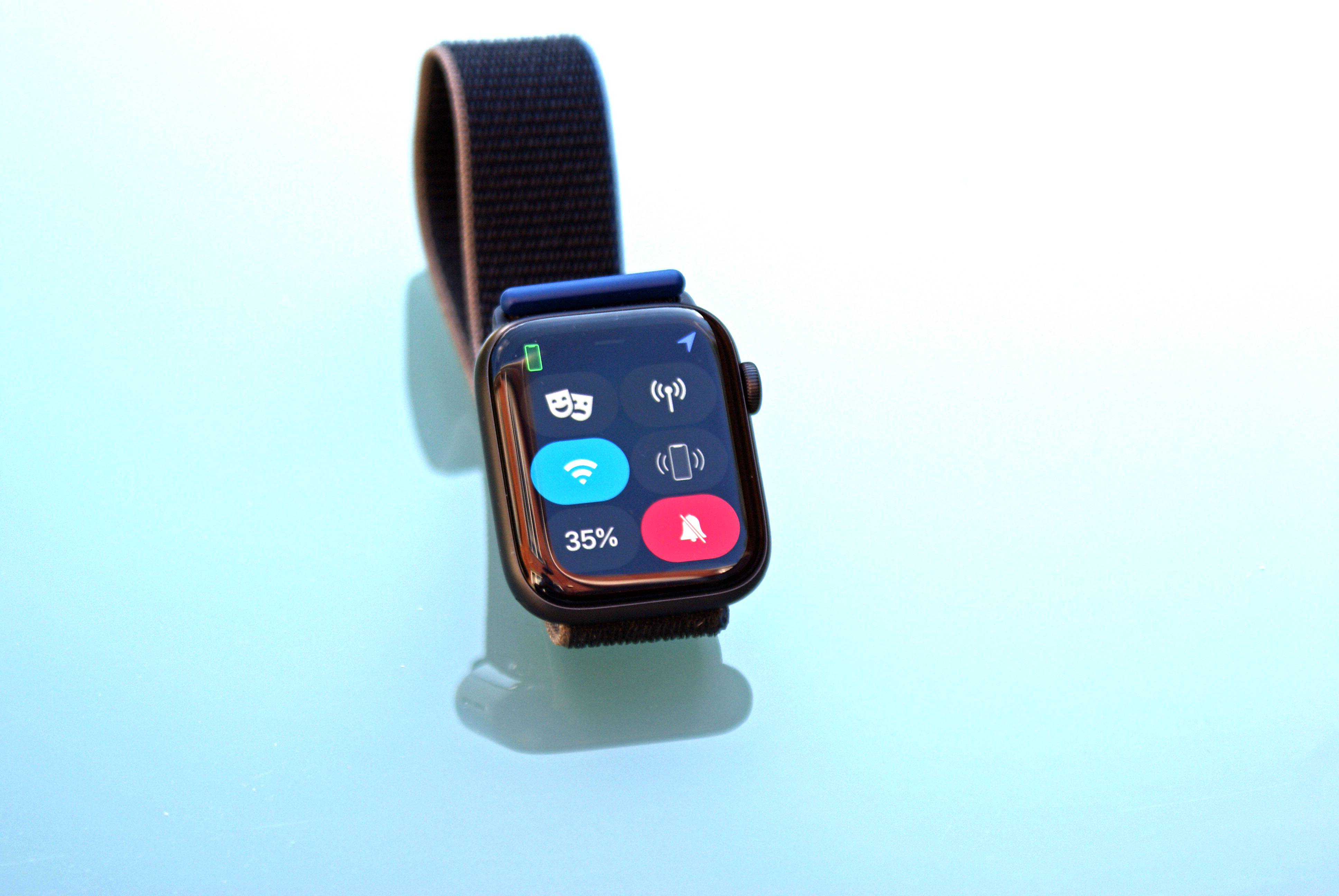
There's no shortage of straps for either device, so you can always mix things up once you get the core components figured out. Both are offered in a range of colors, with the Apple Watch SE coming with a range of strap types too, including a Solo Loop, Sport Loop, Sport Band, or Braided Solo Loop.
In most cases the Samsung Galaxy Watch 3 comes with a leather strap, though if buying direct from Samsung in the US there are sport and quick-change options too.
After you've bought either watch, you can easily swap the straps out for numerous different first and third-party alternatives too.
Bear in mind that the Apple Watch SE is exclusively available in aluminum, while the Samsung Galaxy Watch 3 comes in stainless steel or titanium, with the two devices having a very different look and feel. Both devices are water-resistant up to 50m although as always, salt water exposure isn't recommended here.
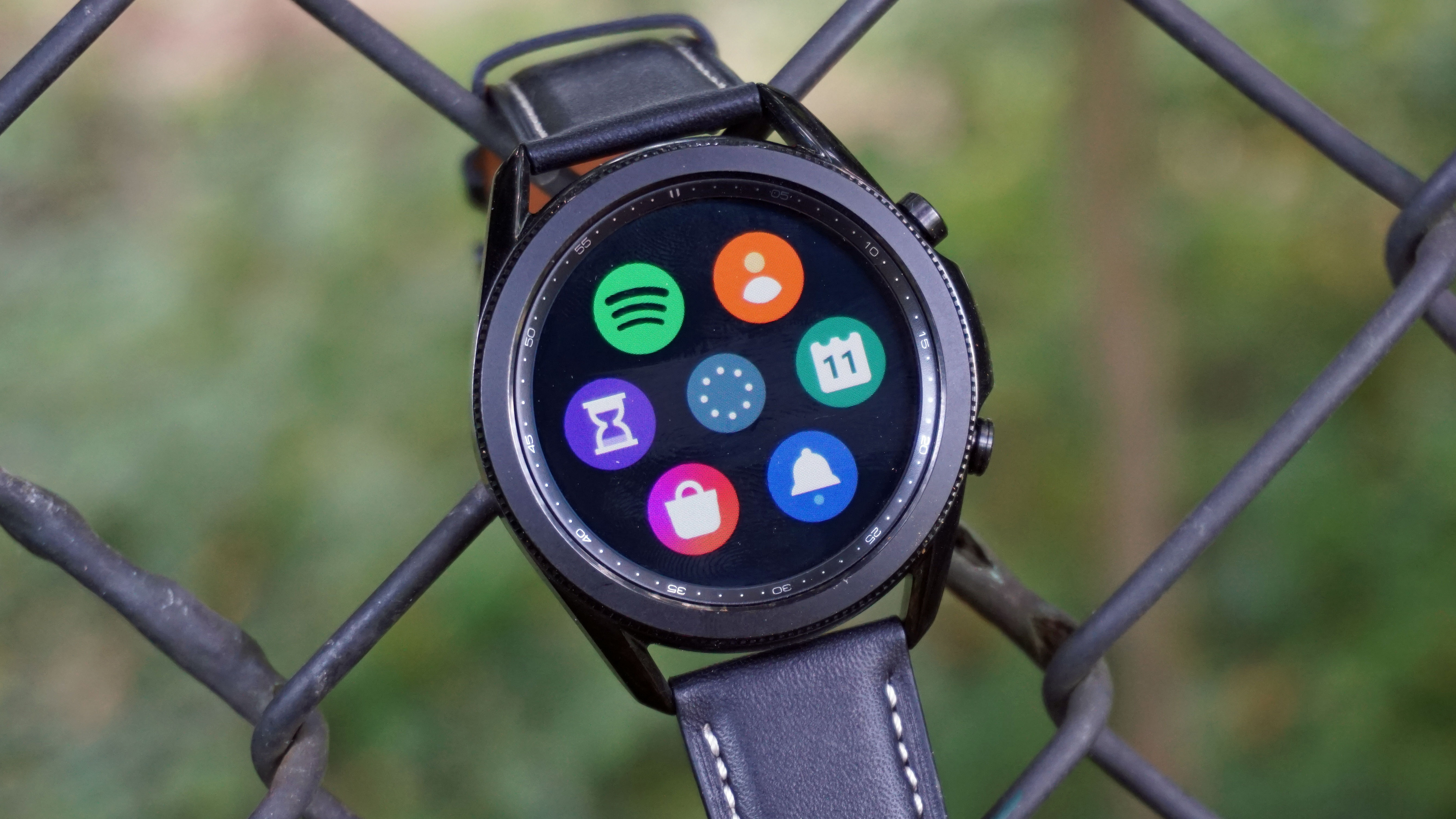
Besides the touchscreens involved, a rotating bezel is how you negotiate the menus on the Samsung Galaxy Watch 3, while the Apple Watch SE relies more on its physical buttons and rotating crown.
While the Samsung Galaxy Watch 3 offers a 360 x 360 Super AMOLED display, the Apple Watch SE provides either a 448 x 368 OLED display (with the 44mm model), or a 394 x 324 one (with the 40mm version).
In practice, there's not much difference between the two wearables when it comes to looks, although Samsung's extra offering is an always-on display that can be a lot more useful in daily use.
An always-on display certainly feels that touch classier and more premium than the Apple Watch SE's screen, which inexplicably skips the feature. Both are bright and easy to read though, even in bright outdoor light.
Fitness and features - both cover all the bases
The Apple Watch SE arguably has the brand recognition for being ideal for fitness thanks to a strong marketing campaign and a steady stream of new features.
It lacks some features of the Apple Watch 6, so there's no ECG or SpO2 tracking, but it's ideal for automatically tracking your workouts and making it easy to sync up with Apple Fitness Plus any time you want to enjoy some guided workouts (for a price).
The attractiveness of the simple to understand yet addictive Activity rings continue to beguile too, with the simple metrics of moving, exercising, and standing throughout the day being straightforward and achievable goals for all. It also supports third-party applications such as FIIT and Wondercise, which can match your movements with those of an on-screen trainer.
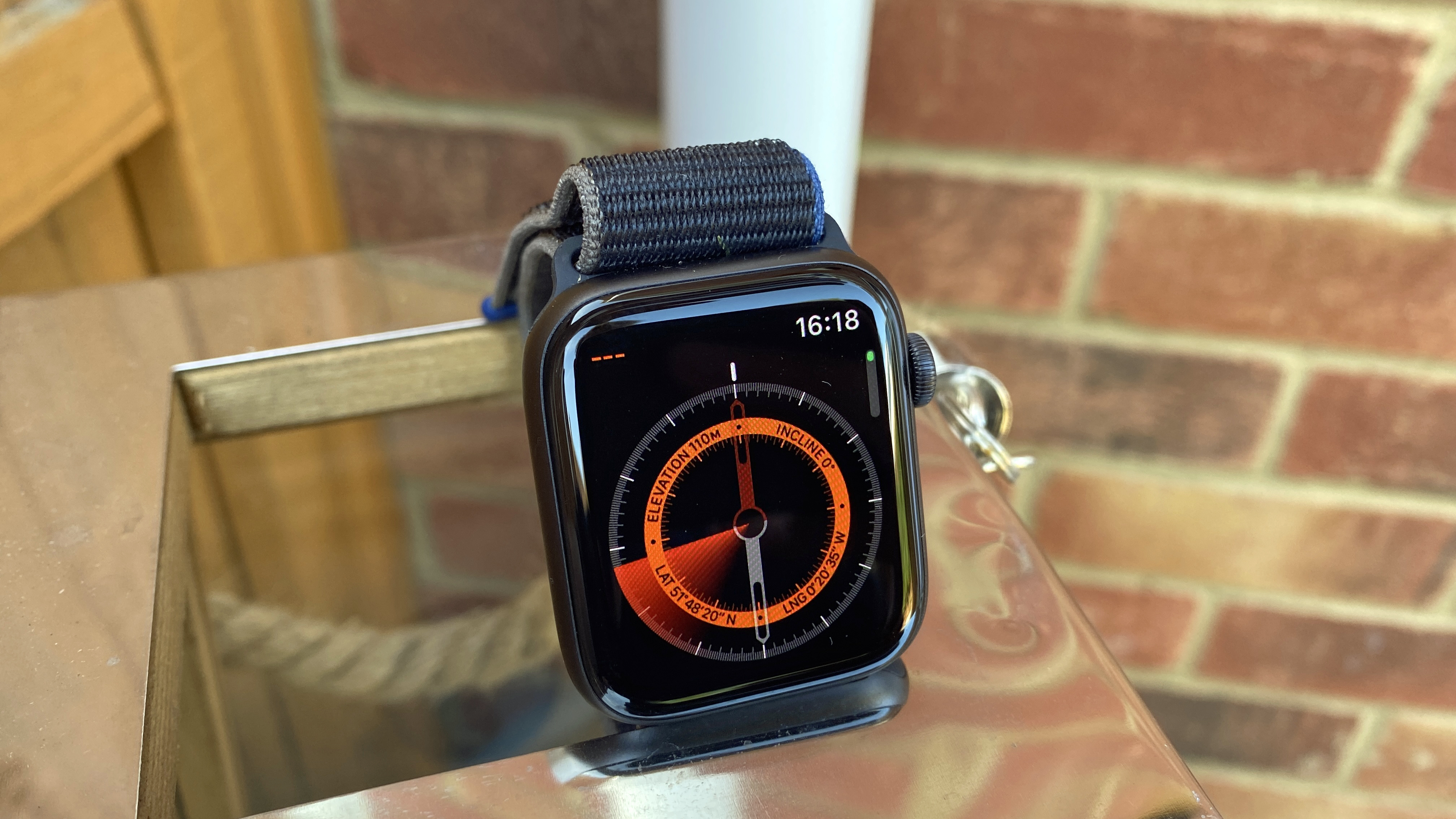
Other health and fitness features include fall detection, emergency SOS, and reminders to breathe and wash your hands, along with menstrual cycle tracking too.
The Samsung Galaxy Watch 3's fitness tracking is automatically triggered if you participate in one of seven activities, including running, walking, swimming, cycling, rowing, or an elliptical or dynamic workout. More can be tracked manually too.
Like the Apple Watch SE, it also offers fall detection along with on-demand VO2 Max readings, and even stress tracking so you can see when you're a bit on edge. The watch will suggest breathing exercises as and when it feels you need them. It also has an ECG and SpO2 tracking - two big things missing from the Apple Watch SE.
Both devices offer GPS tracking, heart rate monitoring and sleep tracking though, so both are equipped to keep active users happy.
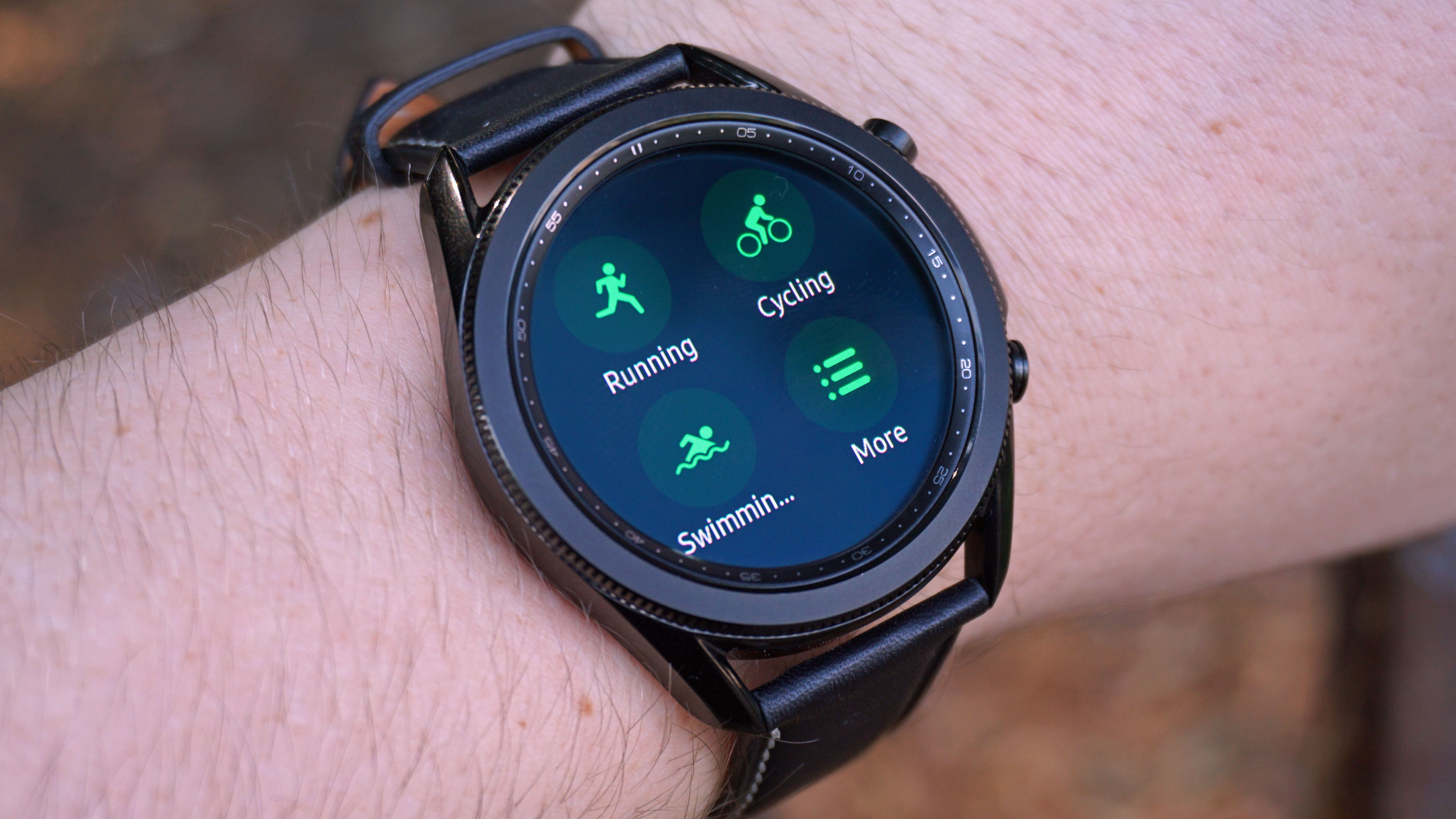
OS, power and battery - some big decisions ahead
Both the Apple Watch SE and the Samsung Galaxy Watch 3 offer voice assistant support in the form of Siri and Bixby respectively. Siri is easily the best of the two, with Bixby being not quite as smooth sailing or as reliable as the Apple alternative.
Ultimately, you'll find yourself tapping more buttons or using the rotating bezel with the Samsung Galaxy Watch 3 than simply talking to it like with the Apple Watch SE.
The Apple Watch SE uses watchOS, which offers far more third-party app support than the Samsung's Tizen OS. Tizen isn't bad by any means and still offers most of the features you'll need neatly tied up by Samsung, but don't count on third-party big hitters like Google Maps to be available here. If you're keen to have plenty of flexibility, the Apple Watch's store is far more extensive and varied.
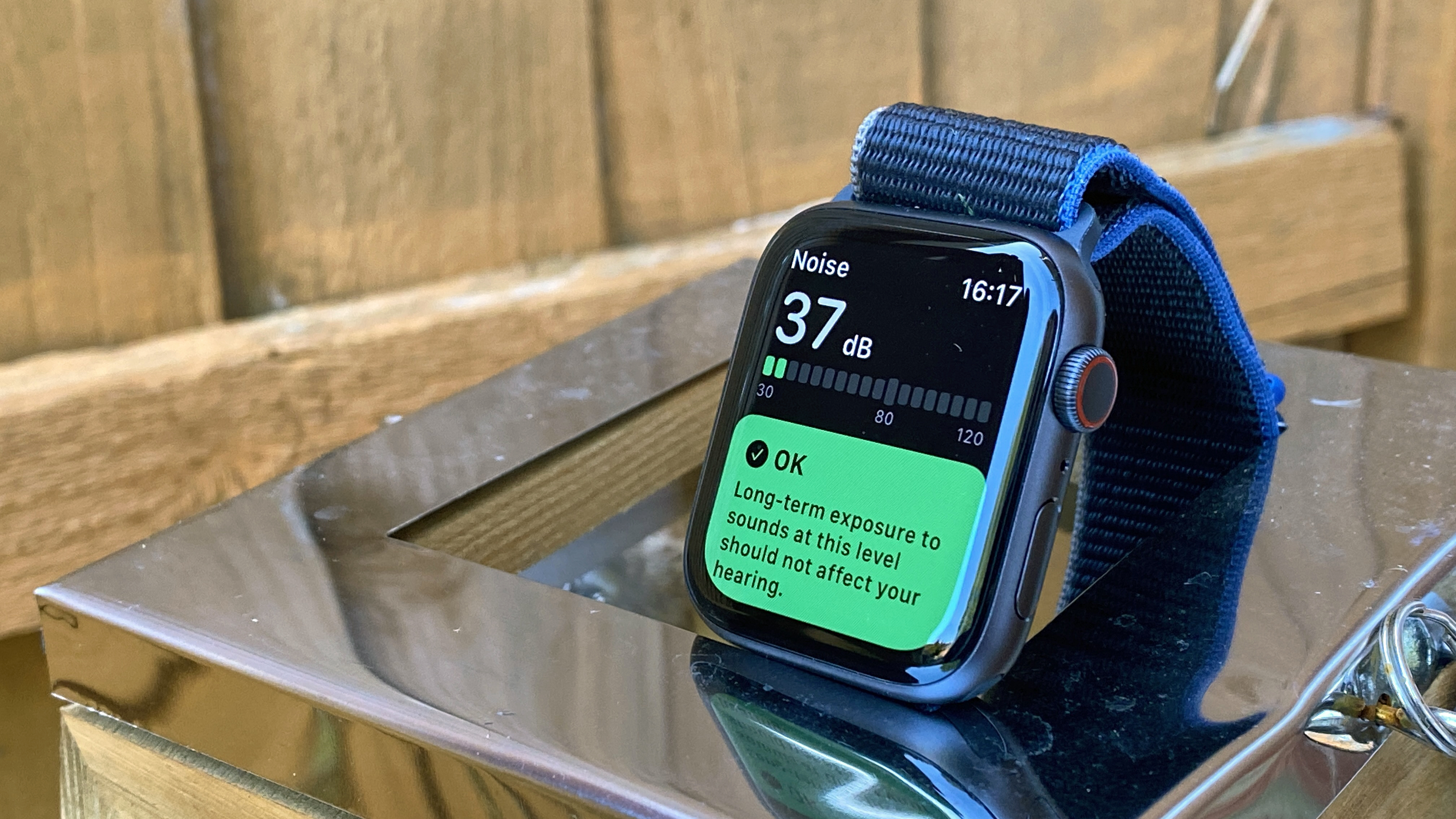
Predictably, each smartwatch favors the smartphones you'd expect. The Apple Watch SE works more or less exclusively with iPhone (there are ways to get it working with Android but you'll lose much of the functionality), while the Samsung Galaxy Watch 3 works best with Samsung handsets, but the vast majority of features work with any Android phone, and it even pairs reasonably well with an iPhone.
When it comes to battery life, the Samsung Galaxy Watch 3 has the edge with a battery life of about two to three days with general use, although an overnight charge certainly won't do it any harm.
The Apple Watch SE promises an all-day battery life but tends to manage slightly more than that in real usage, but obviously, you'll want to recharge them both regularly so you don't have to worry about running out of juice. In both cases, it's GPS usage that will have the biggest effect on how long you'll get out of them.
Takeaway
If you're not sure which watch is best for you, a simple rule of thumb is what smartphone have you already got? If you've got an Android phone then the Galaxy Watch 3 is the clear choice out of these two, as the Apple Watch SE isn't officially compatible with Android.
If however you have an iPhone then both watches are viable - though the Apple Watch SE's closer integration with iOS will make it the more tempting choice for most.
But if you're attracted to Samsung's circular stylings, Tizen OS continues to provide plenty of quality alternatives and features even if its third-party support struggles compared to the breadth of the Apple Watch SE's.
You'll also enjoy slightly better battery life with the Samsung Galaxy Watch 3, an always-on display, and its rotating bezel is a great feature for cycling through menus.
However, the sheer simplicity of the Apple Watch SE is a huge bonus. It still offers the key stats and sensors you'll need, plus there are seemingly endless Apple Watch band options out there for every occasion, and you won't run out of app options either.
- Need more options? Check out the best smartwatches
from TechRadar - All the latest technology news https://ift.tt/33p7vYi

No comments:
Post a Comment